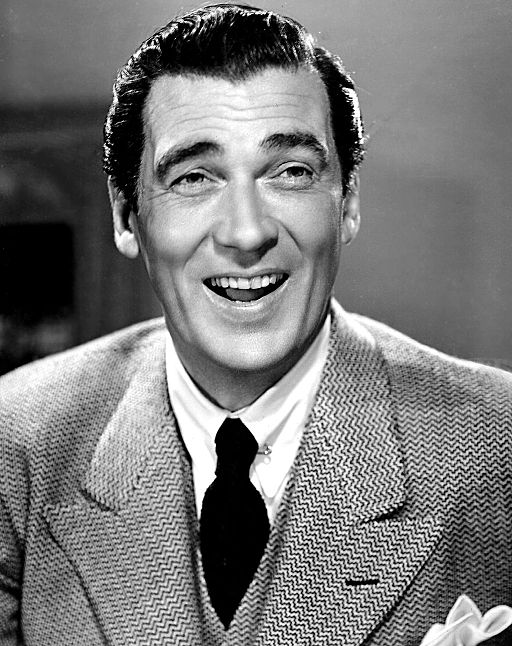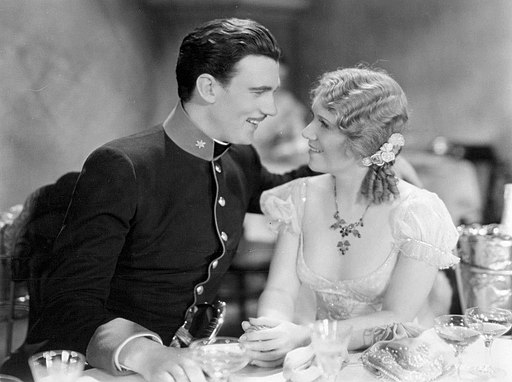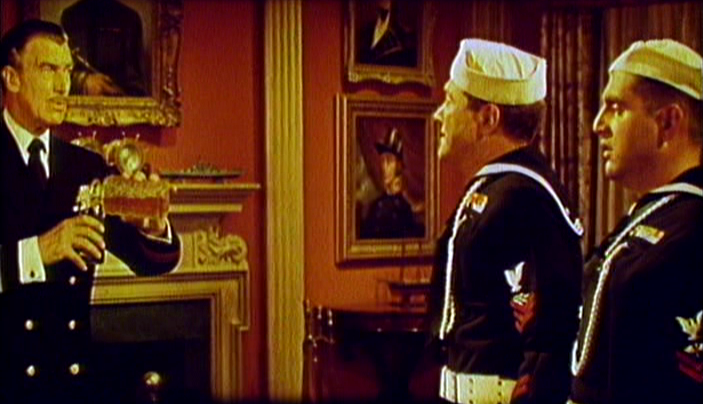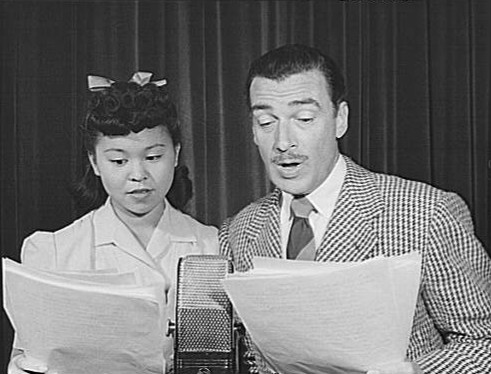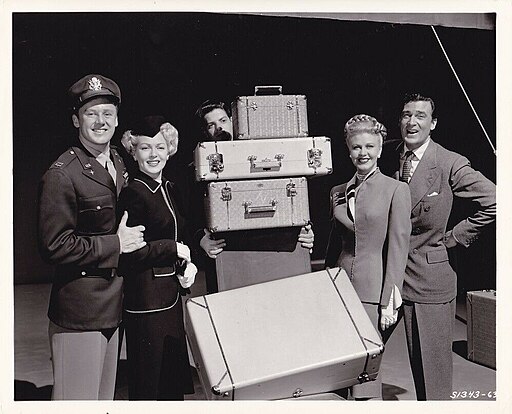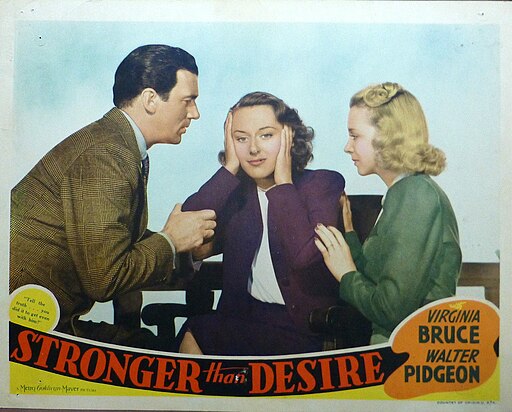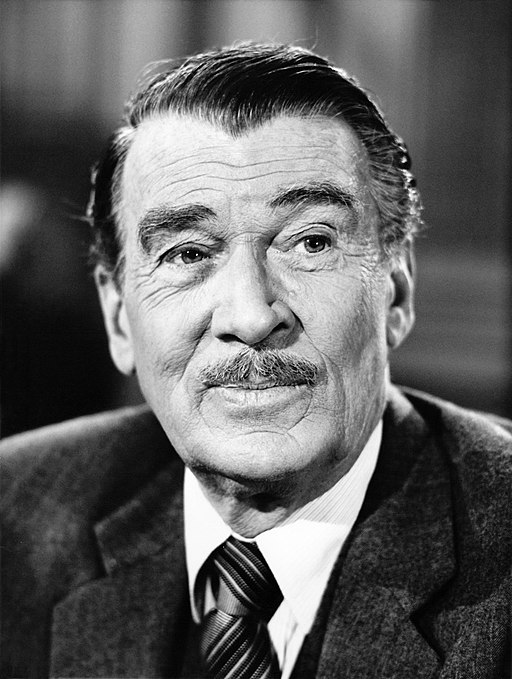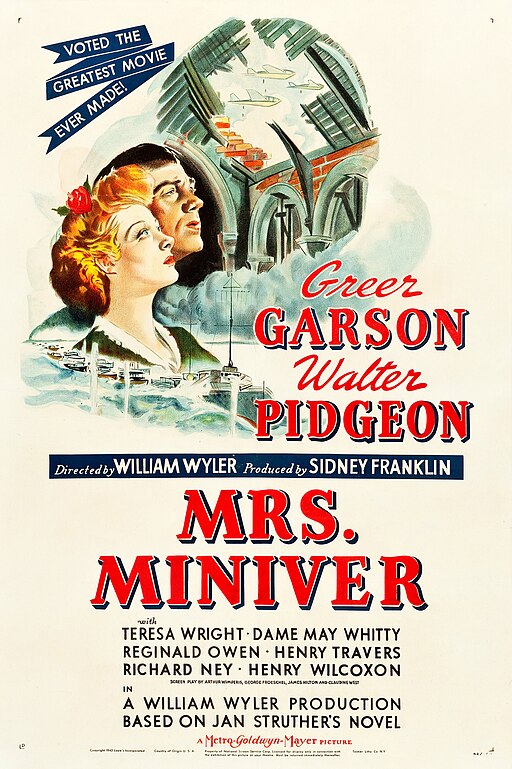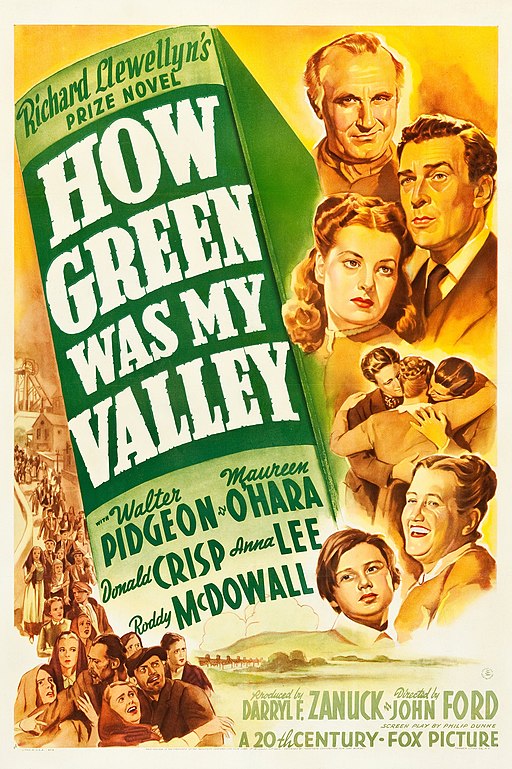Walter Pidgeon
back| Full Name | Walter Davis Pidgeon |
| Stage Name | Walter Pidgeon |
| Born | September 23, 1897 |
| Birthplace | Saint John, New Brunswick, Canada |
| Died | September 25, 1984 |
| Buried | The ashes of Walter Pidgeon were scattered at sea |
| Married to | Edna (née Pickles) Pidgeon (1919 - 1943, her death) - Ruth Walker (1949 - 1984, his death) |
| Children | Edna Pidgeon Atkins |
| Notable films | Mrs. Miniver (1942) - How Green was my Valley (1941) - Forbidden Planet (1956) |
Walter Pidgeon
The Gentleman of the Screen
Walter Pidgeon was a distinguished actor known for his stately presence and resonant voice. He began his career in silent films before transitioning to sound, achieving prominence in the 1940s.
Pidgeon is best remembered for his roles in "Mrs. Miniver" (1942), for which he received an Academy Award nomination, and "Madame Curie" (1943). His other notable films include "How Green Was My Valley" (1941) and "Forbidden Planet" (1956).
Related
Walter Pidgeon (1897 – 1984)
Biography and Career Overview
Walter Pidgeon, born on September 23, 1897, in Saint John, New Brunswick, Canada, was a distinguished actor with a career spanning several decades. He moved to the United States where he pursued his acting career, initially starting in silent films and later transitioning to sound films.
Pidgeon's early career was marked by a series of minor roles, but his talent soon led him to more significant parts. His deep voice and dignified presence made him a natural for sophisticated and often paternal roles. He found great success in the 1940s, particularly with his role in "Mrs. Miniver," which earned him an Academy Award nomination for Best Actor. His performance in "How Green Was My Valley," a film that won the Academy Award for Best Picture, further cemented his status as a leading actor.
Aside from his film career, Pidgeon also appeared on Broadway and was involved in television work. He was known for his versatility, able to perform in a variety of genres including drama, science fiction, and political thrillers.
In his personal life, Pidgeon was married twice. His first marriage was to Edna Pidgeon, with whom he had a daughter, Edna Pidgeon Atkins. After Edna's death in 1943, he married Ruth Walker in 1949, remaining married to her until his death in 1984.
Pidgeon's legacy in Hollywood is marked by his consistent performances and the respect he earned both on and off the screen. He passed away on September 25, 1984, just two days after his 87th birthday. In honor of his contributions to the film industry, Walter Pidgeon has a star on the Hollywood Walk of Fame.
Walter Pidgeon was often referred to as "The Gentleman of the Screen," a nickname that encapsulates his persona both on and off the screen. This moniker reflects his reputation for embodying roles with a sense of dignity, grace, and a certain aristocratic charm.
Short Video Bio on Walter Pidgeon:
Analysis of the Acting Style of Walter Pidgeon:
Walter Pidgeon's acting style was characterized by a blend of stately elegance, dignified charm, and a profound depth of emotional expression. He was renowned for his smooth, resonant voice, which he used with great effect to convey a range of emotions and characters. Pidgeon's voice was not just a tool for dialogue delivery; it was an integral part of his on-screen persona, exuding warmth, authority, or gentleness as required by the role.
One of the hallmarks of Pidgeon's acting was his effortless on-screen presence. He had a natural poise and a commanding aura that drew viewers' attention, yet he never seemed to overshadow his co-stars. This quality made him particularly effective in roles where he played the patriarchal figure or a person of high social or moral standing, as seen in films like "Mrs. Miniver" and "How Green Was My Valley."
Pidgeon's approach to acting was rooted in the classical style, but he was also capable of subtle nuances. He often portrayed complex characters with a mix of stoicism and underlying sensitivity. His performances were typically understated, avoiding over-the-top expressions or dramatic flourishes. This understatement lent a sense of authenticity and relatability to his characters, making them more human and engaging.
Moreover, Pidgeon had a remarkable ability to convey a sense of inner conflict or turmoil through minimalistic expressions. He could communicate the struggles and emotions of his characters through a mere glance, a slight change in tone, or a brief pause in dialogue. This skill was particularly evident in his roles in dramas and melodramas.
In romantic roles or comedies, Pidgeon displayed a charming, suave demeanor coupled with a gentle sense of humor. His chemistry with his co-stars, especially with actresses like Greer Garson, was palpable, adding depth to the romantic narratives.
In essence, Walter Pidgeon's acting style was a blend of classical elegance, emotional depth, and a nuanced understanding of character. His performances were marked by a dignified bearing, a rich voice, and an ability to convey complex emotions with subtlety and grace.
Notable Movies Starring Walter Pidgeon:
- 1925 - "His Secretary": In this silent romantic drama, Pidgeon plays a supporting role in a story about a secretary and her boss's complicated relationship.
- 1936 - "Big Brown Eyes": A light-hearted crime comedy where Pidgeon plays a police lieutenant involved in solving jewel thefts and a murder.
- 1937 - "Saratoga": A romantic comedy film where Pidgeon has a supporting role in a story set against the backdrop of horse racing.
- 1941 - "How Green Was My Valley": This drama, directed by John Ford, is about a Welsh mining town. Pidgeon plays Mr. Gruffydd, a kind-hearted pastor.
- 1941 - "Blossoms in the Dust": A drama where Pidgeon plays a supportive husband whose wife establishes a home for foundlings.
- 1942 - "Mrs. Miniver": Pidgeon stars as Clem Miniver in this acclaimed war drama about a British family's experiences during World War II.
- 1943 - "Madame Curie": A biographical film where Pidgeon portrays Pierre Curie alongside Greer Garson’s Marie Curie, focusing on their research and discovery of radium.
- 1944 - "Mrs. Parkington": A drama where he plays Major Augustus Parkington, opposite Greer Garson, in a story spanning several decades of an American family.
- 1947 - "The Secret Heart": Pidgeon plays a man who helps a troubled teen in this family drama.
- 1948 - "Julia Misbehaves": A romantic comedy where Pidgeon plays the ex-husband of a woman who returns to disrupt his life.
- 1950 - "The Miniver Story": The sequel to "Mrs. Miniver" where Pidgeon reprises his role as Clem Miniver.
- 1956 - "Forbidden Planet": A science fiction film where Pidgeon plays Dr. Morbius, a scientist on a distant planet with a mysterious past.
- 1962 - "Advise & Consent": A political drama where Pidgeon plays a senior U.S. Senator, involved in the confirmation of a controversial nominee for Secretary of State.
Awards and Recognition:
Academy Awards (Oscars):
- Nominated for Best Actor in 1942 for his role in "Mrs. Miniver".
- Nominated for Best Actor in 1943 for his performance in "Madame Curie".
Golden Globe Awards:
- No nominations or wins at the Golden Globes are recorded for Walter Pidgeon.
Other Honors:
- Pidgeon has a star on the Hollywood Walk of Fame at 6414 Hollywood Blvd, honoring his contributions to the motion picture industry.
- He served as the President of the Screen Actors Guild (SAG) from 1952 to 1957.
- Pidgeon was also involved in World War II efforts, including serving as chairman of the Hollywood Victory Committee, which organized entertainment for soldiers stationed overseas.
- Throughout his career, Pidgeon was recognized by various film festivals and industry organizations for his contributions to cinema.
Memorable Film Lines from Walter Pidgeon:
Walter Pidgeon, known for his elegant and dignified on-screen presence, delivered many memorable lines throughout his career. Here are some notable quotes from his films:
- "Mrs. Miniver" (1942): In one of his most acclaimed roles, Pidgeon's character, Clem Miniver, delivers a line that captures the spirit of resilience during war: "This is not only a war of soldiers in uniform. It is a war of the people, of all the people, and it must be fought not only on the battlefield, but in the cities and in the villages, in the factories and on the farms, in the home, and in the heart of every man, woman, and child who loves freedom."
- "Madame Curie" (1943): Portraying Pierre Curie, he says, "It's like a beautiful dream, yet I am afraid to believe in it. Could it be possible that we have discovered the most powerful source of energy in existence?"
- "Forbidden Planet" (1956): As Dr. Morbius, Pidgeon delivers a line that reflects the movie’s theme of the unknown and the power of the human mind: "In my studies of the Krell technology and culture, I came to a single theory that explains their mysterious disappearance."
- "Advise & Consent" (1962): Playing the role of Senate Majority Leader, he states, "In here, Mr. President, we are all equal. Remember that."
- "How Green Was My Valley" (1941): As Mr. Gruffydd, Pidgeon's character imparts wisdom with, "A man's home is his castle, and each of us must be king in his own."
All Movies featuring Walter Pidgeon:
- 1925: "Mannequin"
- 1925: "The Outsider"
- 1926: "The Gentleman from America"
- 1926: "Miss Nobody"
- 1926: "New York"
- 1927: "The Gorilla"
- 1928: "Melody of Love"
- 1928: "Turn Back the Hours"
- 1928: "The Studio Murder Mystery"
- 1929: "A Man's Man"
- 1930: "Viennese Nights"
- 1930: "Sweet Kitty Bellairs"
- 1931: "The Hot Heiress"
- 1931: "Kiss Me Again"
- 1931: "The Prodigal"
- 1932: "Rockabye"
- 1932: "Society Girl"
- 1933: "The Kiss Before the Mirror"
- 1933: "Storm at Daybreak"
- 1933: "The Last Gentleman"
- 1933: "My Weakness"
- 1934: "The Mystery of Mr. X"
- 1934: "Crime Without Passion"
- 1934: "Sadie McKee"
- 1934: "She Loves Me Not"
- 1935: "Naughty Marietta"
- 1935: "West Point of the Air"
- 1935: "I Live My Life"
- 1936: "The Dark Angel"
- 1936: "Big Brown Eyes"
- 1936: "Man of the People"
- 1936: "My Marriage"
- 1937: "Saratoga"
- 1937: "The Girl of the Golden West"
- 1937: "Rosalie"
- 1938: "A Man to Remember"
- 1938: "Too Hot to Handle"
- 1938: "Listen, Darling"
- 1939: "Stronger Than Desire"
- 1939: "6,000 Enemies"
- 1940: "The House Across the Bay"
- 1940: "Dark Command"
- 1940: "Flight Command"
- 1941: "Man Hunt"
- 1941: "Blossoms in the Dust"
- 1941: "How Green Was My Valley"
- 1942: "Mrs. Miniver"
- 1943: "Madame Curie"
- 1944: "Mrs. Parkington"
- 1945: "Week-End at the Waldorf"
- 1947: "Holiday in Mexico"
- 1947: "The Secret Heart"
- 1948: "Julia Misbehaves"
- 1948: "Command Decision"
- 1949: "If Winter Comes"
- 1949: "That Dangerous Age"
- 1950: "The Miniver Story"
- 1950: "The Red Danube"
- 1951: "Soldiers Three"
- 1951: "Calling Bulldog Drummond"
- 1951: "The Unknown Man"
- 1952: "The Sellout"
- 1952: "Million Dollar Mermaid"
- 1953: "Scandal at Scourie"
- 1953: "Dream Wife"
- 1953: "The Girl Who Had Everything"
- 1954: "Men of the Fighting Lady"
- 1954: "Executive Suite"
- 1954: "Deep in My Heart"
- 1956: "Hit the Deck"
- 1956: "Forbidden Planet"
- 1956: "These Wilder Years"
- 1956: "The Rack"
- 1957: "Designing Woman"
- 1957: "Something of Value"
- 1958: "The Old Man and the Sea"
- 1959: "A Stranger in My Arms"
- 1960: "Voyage to the Bottom of the Sea"
- 1960: "The Sundowners"
- 1961: "Advise & Consent"
- 1962: "Big Red"
- 1964: "Funny Girl" (Cancelled film project)
- 1968: "Warning Shot"
- 1968: "Funny Girl" (New version)
- 1970: "The Vatican Affair"
- 1970: "The Delta Factor"
- 1973: "Harry in Your Pocket"
- 1976: "Two-Minute Warning"
- 1977: "Sextette"

